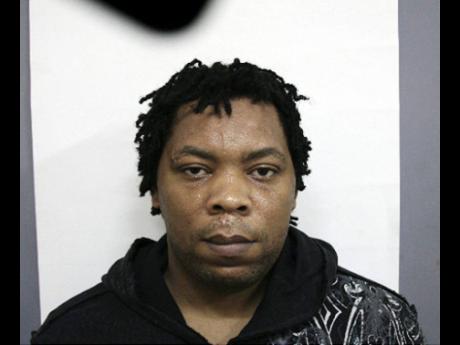Update | Tesha Miller accuses Crown of cooked-up conviction
Seeks copies of trial documents to mount appeal
Reputed don Tesha Miller is accusing the judge who sentenced him to almost 39 years of playing a role in his "cooked-up" conviction by giving a perceived light jail term to a witness.
Reputed don Tesha Miller is accusing the judge who sentenced him to almost 39 years of playing a role in his "cooked-up" conviction by giving a perceived light jail term to a witness.
Miller was convicted of charges of accessory before the fact to murder and accessory after the fact to murder in December 2019 and was sentenced the following month to 38 years and nine months on the former and 18 months on the latter by Justice Georgiana Fraser.
The charges stemmed from the murder of the former chairman of the Jamaica Urban Transit Company, Douglas Chambers, outside a bus depot in Spanish Town, St Catherine, on June 27, 2008.
The court accepted that Miller, who was accused of being the leader of the Spanish Town-based Clansman Gang, had given the order for Chambers to be killed.
A self-proclaimed ex-gang member had testified that Miller had instructed André 'Blackman' Bryan to kill Chambers.
Bryan, who was charged with Chambers' death, was freed in 2016.
Miller is contending that he was not given a fair trial and that the judge, prior to his trial, had sentenced the main witness in an in-camera hearing and had given the witness an unduly lenient sentence of 10 years for murder.
“I believe the entire Crown case against me was cooked up since the judge played a major role in gifting the witness a significant reduction in sentence from life to 10 years,” Miller said in his affidavit.
Miller added that he was “hell-bent” on not being tried by the trial judge after his lawyer told him that he had never, in his 40 years of practice, been barred from a sentencing hearing in an open courtroom or was ever privy to a closed-door sentencing.
The statement was given in support of a notice of application for the production of a typewritten transcript, the written report from the trial judge, a certified copy of the judge's notes of the trial, and an extension of time to file documents and leave to adduce fresh evidence, which is to be made in the Court of Appeal on Monday.
Fresh evidence refers to evidence that was present at the time of trial but was not put before the court.
The 42-year-old businessman, who is appealing his sentence and conviction, said the transcript of his trial did not accurately capture everything that occurred, including the comments by the prosecution, particular statements made by the jury after it was empanelled, a lizard incident which was reported in the media, and the main witness account of what he was allegedly promised by the director of public prosecutions for giving evidence.
Miller recalled several “unfair” statements allegedly made by the prosecution, including one saying, “If fish come from sea bottom and say shark down there, you must believe them”, which, he claimed, was omitted from the transcript.
According to him, the jurors were nodding their heads in agreement with the comment.
“It seems the core of the Crown's opening and closing [argument] was that if ... a criminal say I am a criminal, this was sufficient evidence to convict him. The judge did nothing to correct this issue while making a distinct attack on comments made by the lawyer in his closing address to the jury,” he further claimed.
Miller is of the view that the production of the relevant materials would level the playing field and ensure that the appellate court and his lawyers have information to which the Crown and trial judge were privy.
“It is possible that a fair, just, and complete review by this superior court of my trial, conviction and sentence would be stymied by the failure to request the production of these documents, prior to its consideration of my grounds of appeal.
“The superior court may very well reject as baseless grounds of appeal, which may well be supported by information outside of the knowledge of the transcript, the defence and the superior court,” Miller contended in his affidavit.
Millers' lawyers, following his sentence, while indicating their intent to appeal his sentence and conviction, had argued that the sentence was excessive and had also questioned his conviction in light of Bryan's acquittal.

